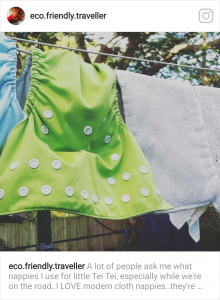What is Plastic-Free July – and how to get involved
Plastic Free July is a global movement that helps millions of people be part of the solution to plastic pollution.
Founded by the Plastic Free Foundation in 2011, Plastic Free July allows us to work towards our vision of seeing a world free of plastic waste so we can have cleaner streets, safer oceans and beautiful communities.
The Plastic Free July challenge helps millions of people take small, daily actions to reduce plastic consumption. Last year, 326 million people across the globe took part in the challenge from 177 countries to reduce each participant’s household waste and recycling by an average of almost 5% (21kg).
This year, the Plastic Free July® challenge is calling on people to choose to refuse single-use plastic in a bid to help exceed last year’s worldwide efforts and hit the global target of 1 billion kilos of waste avoidance.
Whether you’re a beginner or an avid plastic-waste warrior. This is a great opportunity to reinstate the positive progress made in reducing plastic waste and pollution in our own household and across the globe. How much of a difference would this make in your house?
Rebecca Prince-Ruiz, founder of Plastic Free July and one of the world’s leading plastic waste experts, explains why she believes the challenge can achieve record waste avoidance this year.
“Every year this challenge has grown exponentially, having started with only 40 colleagues in Perth to over 250 million global participants. This year the challenge feels more poignant than ever as we begin to realise how intrinsically our social and physical environment is tied to the fundamental wellbeing of our communities. We have also seen the power of collective action firsthand. Whilst Plastic Free July is a personal challenge, participants are part of a global effort to create cleaner streets, oceans, and a cleaner, healthier planet. We can all be part of the solution.”
The Plastic Free July Challenge seeks to address the most critical solution to plastic pollution – waste avoidance. Reducing waste and recycling is significantly more energy-efficient than piling up landfill or trying to extract plastic waste from the environment.
“Plastic Free July isn’t about drastic lifestyle change; it’s about being more conscious of the single-use plastics that you use day-to-day and taking small but smart steps to reduce them. Simple swaps could include switching to bar soap or avoiding plastic when you buy your vegetables. The majority of challenge participants started by choosing to refuse at least one single-use plastic but nine out of 10 ended up creating long-term habits that lasted far beyond the challenge itself,” said Rebecca Prince-Ruiz
Plastic Free July stated that last year, 73% of participants refused takeaway coffee (double that of those who have not been part of the challenge) and 8.5 out of 10 people made changes that have become a way of life.
To help you with your challenge, or just to help you get started, we will be sharing handy tips and tricks of how you can reduce your plastic consumption throughout the month of July. Sign up to be part of the solution and join the Plastic Free July movement here. Will you be taking part in the Plastic Free July challenge?









